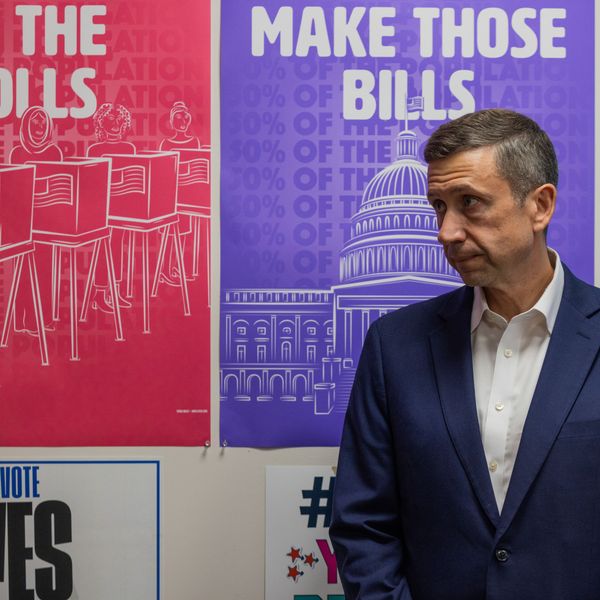The electoral process is just as "rigged" as the economy, Bernie Sanders supporters are charging after it was reported that, despite his double-digit trouncing of Democratic rival Hillary Clinton in New Hampshire, he may walk away with the same number of delegates as the establishment favorite.
In New Hampshire, Sanders won 15 pledged delegates with his 22-point victory on Tuesday while Clinton won nine. However, the former secretary of state also claims the support of six superdelegates, or state party elites and elected officials empowered to line up a candidate of their choosing.
The Democratic Party has a total of 712 superdelegates, who, observers note, could potentially "tip the scales" in a primary contest like this one, where an insurgent candidate has the potential to win the popular support over the party-favorite. (In comparison, the Republican party has 126 super delegates.)
In the days since the New Hampshire results were announced, a petition calling on party superdelegates "to hold off making their decisions until the voters had spoken" has garnered over 66,000 signatures. Another, launched on Monday, has over 130,000 supporters.
One key difference between delegates and superdelegates is that the latter does not have to make a full commitment until the national convention, which will be held in July.
"The race for the Democratic Party nomination should be decided by who gets the most votes," one petition states, "and not who has the most support from party insiders."
As Princeton University professor Matt Karp explained on Democracy Now! on Thursday, Sanders' candidacy threatens to expose what he says is an essentially undemocratic system.
Unlike other insurgent candidates, Karp said, Sanders has "made a clear ideological break from the party," with his rejection of the New Democrat approach and business-friendly economics. Sanders has also won a lot more popular support than other "underdog candidates" at this point in a campaign season, including Barack Obama in 2008. What's more, Sanders has had "zero backing" from the party.
This combination of factors, Karp said, threatens to "put the system to the test."
Guardian columnist Trevor Timm predicts a similar reckoning for the party.
"It turns out, the Democratic party decides its nominee in a massively undemocratic way--and is a ticking time bomb for the party and its voter base if Sanders keeps winning," Timm wrote on Thursday.
He continues:
While they only make up about one-sixth of the total delegates, they are more than enough to swing the election either way - even if a candidate clearly wins a majority of votes and regular delegates during the primary season.
In other words, it could make the primary elections meaningless. Bernie could end up decisively winning the popular vote but still have the nomination stripped away from him at this summer's convention.
And unlike in 2008, when a number of superdelegates eventually backed Obama--who, Timm notes, "was always considered friendly to the party's elite"--Sanders "is losing the superdelegate race by a catastrophic amount."
"[G]iven how Sanders falls well outside the establishment," Timm continues, "it's hard to see how he can gain a significant number to make up for Clinton's lead--meaning it's more likely that superdelegates would at least want to tip the scales in favor of Clinton, even if he ends up winning more primaries."
As far back as August, the Clinton campaign boasted having the support of more than 440 superdelegates.
What's more, as Intercept journalist Lee Fang reveals in this series of tweets, many of the superdelegates who have already pledged support to Clinton have fundraising or established lobbying ties to the candidate.
The entire process, Karp continued, exposes another leg of what he refers to as "the invisible primary," where "media elites, big donors, union leadership" and the heads of other Democratic party-aligned groups have "pushed back against the Sanders insurgency" and "launched a consolidated effort to [stand] up for Clinton as the establishment candidate."


